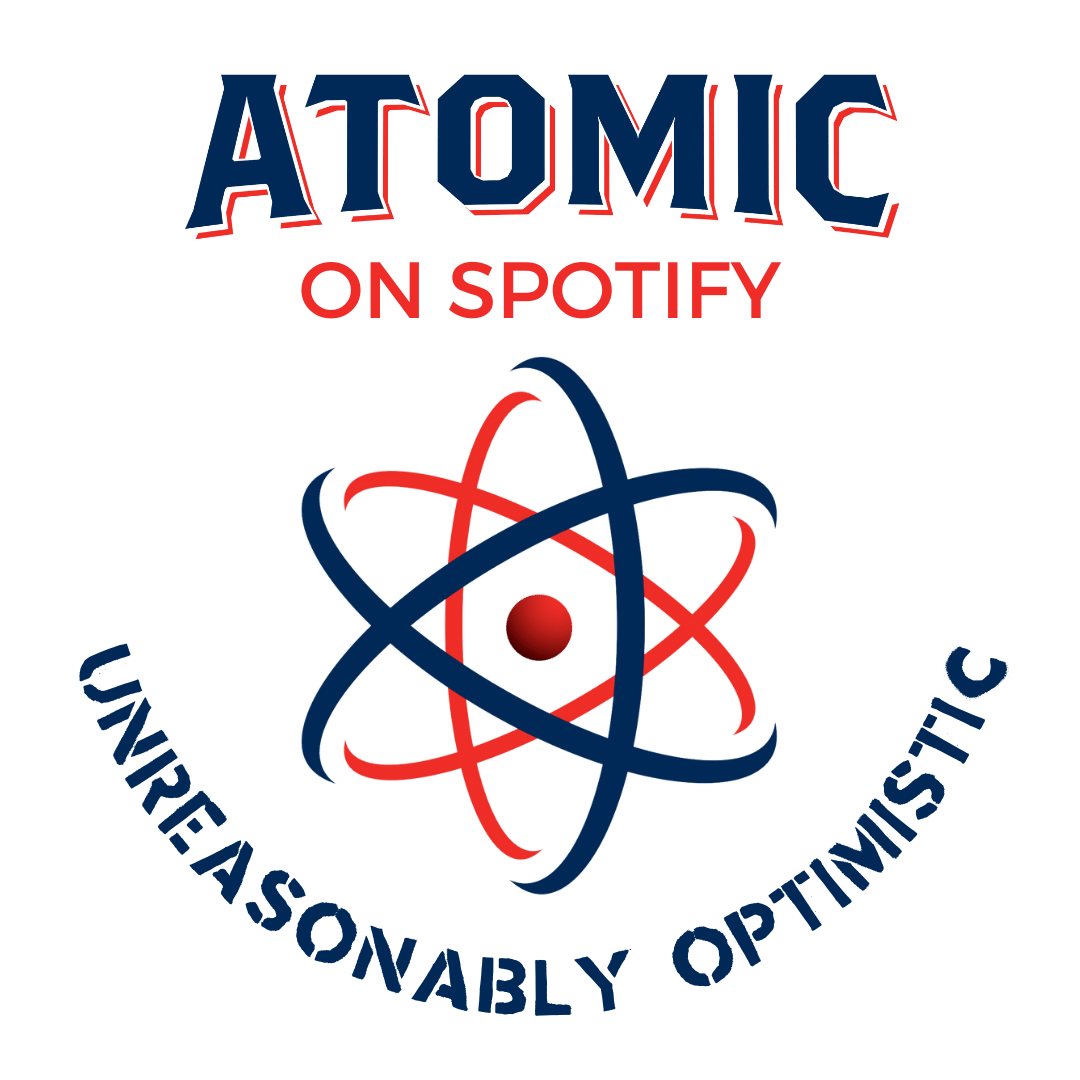Problem Solving with Cam Marston
Problem Solving with Cam Marston
BY ATOMIC | JUL 30, 2023
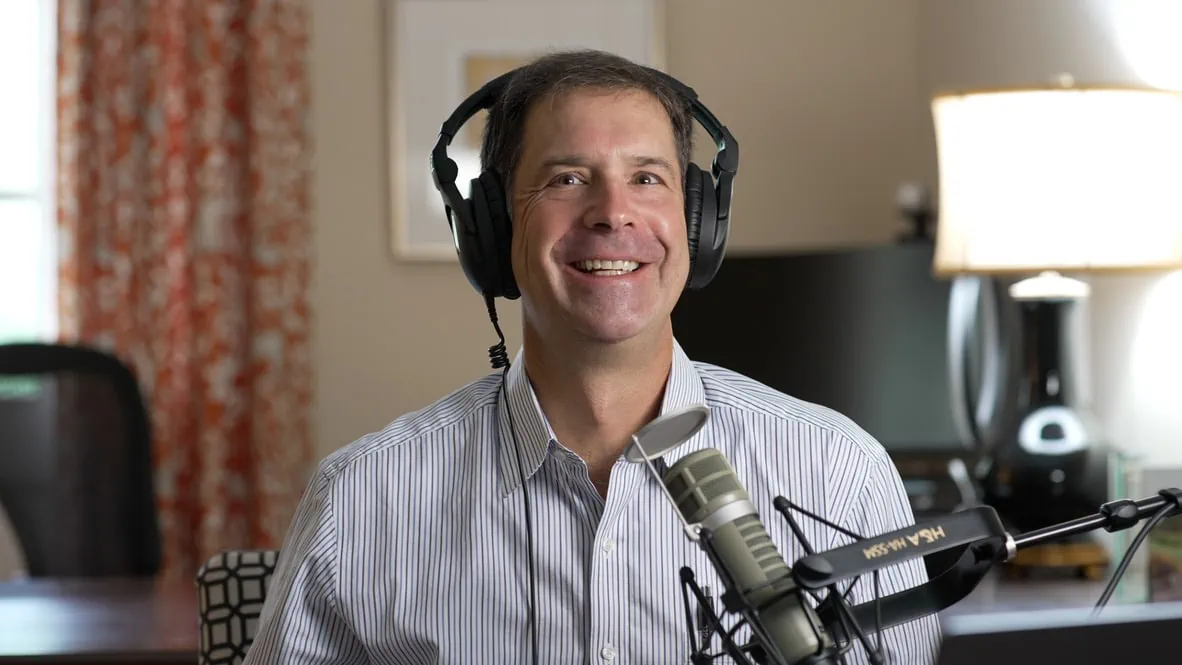
Gayle sat down with workplace consultant and public speaker Cam Marston. The two talked about workplace and market trends, career paths, and even some favorite books. Not only is Cam a consultant, he is also a podcaster, radio host, author, and top-rated keynote speaker.
We are looking forward to diving more into Cam’s book, What Works. If you want your own copy, purchase it on Amazon. And you already know we’ve added his podcast, What’s Working with Cam Marston, to our library.
As a digital marketing agency in Birmingham, AL working to start a podcast, we really enjoyed all of Cam’s insights.
Why don’t you give us some insight into your history from the days when you were in North Carolina and how you sort of went from lily pad to lily pad and where you are now?
Good way to describe it. So, the early days in North Carolina was when I struck out on my own. And I, I, I arbitrarily put the date, 1999. There wasn’t a there wasn’t an absolute moment where I said, this is it. It was a gradual transition to becoming the business owner that I am. I started out doing research and exit interviews and what are they called? Facilitation, group facilitation. My clients were employers who were struggling with understanding the turnover in their organization. Why are these people leaving? And they hired me to do exit of those people and to facilitate these conversations without the leadership of the group, of the company present, feeling that they would be, the employees would be more candid with me than they would be with them. So I would compile what I learned from these conversations and essentially turn it over to the employer in a three-ring binder saying, here’s the executive summary, if you will, but here are the causes of turnover.
And at the time, it was just as Generation Xers were becoming known in the workplace, and their behaviors were becoming something that people could identify clearly. And so that’s a very Generation X behavior. And in order to get more business doing those exit surveys and, and focus groups, I would go give a presentation to a local HR group in Charlotte and say to the local HR chapter, I’d love to be your luncheon speaker so I can share these trends. And they accepted, and I began to go out and deliver these things, and the employers in the room would say, Hey, we’d like that presentation. And I said, well, I’m nearly not here to give the presentation. I’m here to get booked to do more of these research and exit surveys. And they said, no, we don’t need that. We need the presentation. Everything you’re saying we know is true.
And it’s our leadership at my company that’s struggling to understand this. You deliver it in a way that I think they could understand it. Would you come to my workplace? And then I, and they said, we’ll pay you to give the presentation. I went, oh, really? It’s a foreign idea. Oh, really? So that was kind of the first lily pad, to use your metaphor, which I love, by the way. And these organizations would then say, I’d like you to do that at the regional HR meeting, and then the National HR meeting. And it began to grow. And I would deliver this content on the trends that we were studying and began to charge a fee to give those presentations. And that was 20 some odd years ago. Yeah. Today, those people, not those people, but people still hire me to deliver those presentations on trends taking place in the workplace, in the workforce, and the marketplace.
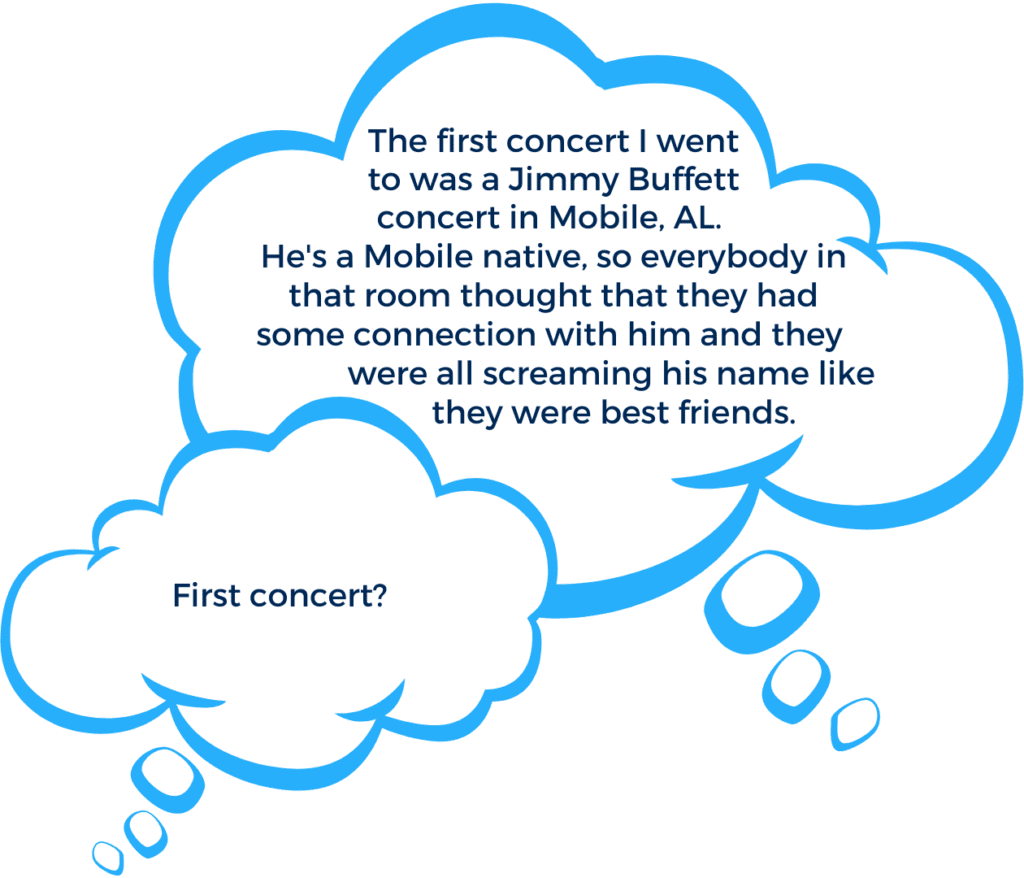
We’ve added the marketplace since then. Helping people better understand the motivations of their employees. And what I’m known for in this space is segmenting the population by generation. So here’s the gen today. Currently, here are the characteristics of the Gen X manager and leader. Here’s what he or she is most commonly known for. And I give a description, and most people in the room listening will understand that description.
Oh, I know that that reminds me of so and so, or I can see myself in that. And here are the different generations you’re managing and leading, and here are the millennials, and here are the baby boomers, and here’s Gen Z, and here’s what they’re looking for. And here’s where these challenges and frictions occur, and here are the solutions that I found to those challenges and frictions. And I go, I used to do, I, there were years that I did a hundred of these a year.
Wow. Now I’ll do 30 just because it became a huge lifestyle problem Yeah. Of living on the road. And I’ll do 30 a year and be able to prepare for them. And I don’t live on the road anymore. And that is the bulk of the revenue that I generate is doing the research, writing the books, developing the training programs, and delivering the presentations. And I’ve got a guy that delivers presentations of my content for me when I’m unable to do so. Okay. And in that process began a, so that’s still, that’s the bulk of it. I have a radio show that’s broadcast across the state of Alabama called What’s Working with Cam Marston. We’re in six markets right now with hopes of growing. In fact, the rest of the day will be spent on growth plans on that. And it’s through these interviews, through the radio show that I’m learning the solutions to many of the problems that my clients have.
So I book guests on the show that I know have insight into the solutions. I interview him or her, and I’m writing furiously. I re-listen to the interview, and then I take the nuggets from that interview, and I’m able to bring it to my clients and say, Hey, you’re struggling with turnover. Here’s what this guest said. And I’m able to provide, I, I call it somewhat, I don’t know, this is, this is very self-indulgent, but the tip of the spear content for these people who are struggling to figure out turnover. I’m able to say, I’ve had five interviews in the past 10 weeks, people that are doing new things, here are how they’re doing it. Let’s give it a try. So the radio show provides the content for the seminars. The radio show also is a, is a very small profit center, but it’s a, it’s, I began it for a number of reasons. One of which is to continue with the research in a new way that I felt like it was fun for me. And I love doing it. Absolutely love doing it.
I’m always curious about what pushes people to start a business. It sounds like you were pushed into it to a degree?
In that situation. Yes. People were asking for it. I did not have to sell it. It was only a short time after I began that process that I started selling it to say I’d love to be hired to give this presentation to your team to deliver this workshop. So I began selling it. Once I learned I could be successful and found that I liked doing it, I thought, well, to keep doing it, ultimately, the demand would peak. And if I want to raise my fees and stay busy, I have to learn to sell it. So I did have to learn to sell it.
Do you think you’re naturally a salesperson?
I have become better. I used to hate the term sales. I don’t mind it so much anymore. But, if the client needs and wants it, I have no problem selling it. But I have no issues backing out of an arrangement that I’m just not a fit here. And I’ll feel like I’ll feel wrong doing this business. Because I’m not, this is not a good fit. Now, if they continue to pay me, I’ll do it. But I am fine with saying this is not a good fit. You need somebody else. So I’ll sell when I see that there’s a purpose for it and it’s the right thing to do.
That matches up with one of the headlines on your website, which is you’re about solutions. You’re a fixer — not a bandaid person. You’re actually trying to fix the problem?
I don’t want them to leave my presentation saying that it was great. That was fun. I want them to say that it was helpful. That was great. That was fun. Yeah. I’ve seen so many motivational speakers as I’m waiting for my turn on a keynote slot, and they come out of the thing and say that it was just great. Well, I say what did he say? What was the content? What was the message? They say I don’t know, but it sure was fun. I’m like, that’s just a waste of time.
So what came after speaking? What was your next lily pad?
Well, the speaking led to developing the workshops. So, though it’s all under the same umbrella, the speaking led to the workshops led to the books, and the training seminar. So those were all one lily pad away from each other. Right. And about six years ago, I took a very different tack and started the radio work, where I’m getting my current research now.
Of all those things, do you love them all? Or is there one you like a little bit more than the other?
There is no replacement in my experience for stepping out on the stage in front of an audience. There is an adrenaline rush that’s like going over the top of a rollercoaster. And there is, for me, it’s hell to pay to get there. So say I’m doing a presentation in Dallas. All the airplane work you must do to get there, the TSA lines and everything. I wouldn’t say I like getting to the destination. I like being at the destination. So for that reason, I love the presentations. I wouldn’t say I like the travel that’s demanded by the presentations. I love the radio interviews. I get a big rush from meeting new people, like what you and I are doing here right now. Yeah. Once the interview is over, I’ll be on a high for a little while.
And I’ve learned that about myself and reaching out and meeting new people. I don’t fear the failure of them saying no anymore and making these connections. We’ve done over 250 of these interviews, and I can connect these people, as they mentioned needs. I can find opportunities to connect with people, and I love that feeling. I wouldn’t say I like searching for advertisers for the radio show. That is painful, difficult work. So every one of these things has a high to it, and the higher, the highest high of it is bigger than the lowest low. So I keep going about it. My attitude is that if I like 60% of what I do, then I can go through the 40% to get to the 60%.
When you look at your podcast or maybe even your book, what do you think differentiates you?
So a couple of things. It’s a great question. I view a book as a business card. It’s a very thick business card. It’s a credibility builder. And there are a lot of people that say, I want to write a book. I should write a book. I plan to write a book. For me, a book is a credibility builder. And if I’m trying to get someone on the radio show, which is also the podcast, and I need help to get their attention. I send them my book, which helps me stand out amongst the others trying to get their attention. The first and foremost use of every book I’ve written is a credibility builder, essentially a business card. Each book has paid for itself, but q aI cannot point to a yacht named after my books. That just doesn’t exist.
It’s a business card, and it’s a credibility builder. That’s what makes me different in that regard.
The books support the radio show. I’ve written a book about the radio show that supports the radio show. The books about the generations I’ve written support the speeches and are meant to help me book more of those presentations. Furthermore, it’s not uncommon for someone, for example, to do a program in Gulf Shores not long from now and they bought 300 copies of the book. Like, Hey, that’s great. I mean, I can’t retire off of that. But I wrote the book to support the show.
The podcast — what makes me stand out, I feel, is that I’m truly looking for insight from my guests that will help my listeners by, in the back of my mind, there is some curiosity that I want to know these people. But in the back of my mind, I’m trying to frame questions from which my listener will benefit. I read a statistic that most podcasts very seldom go beyond 12 episodes. People will fall in love with the idea of a podcast, and then they realize it’s work.
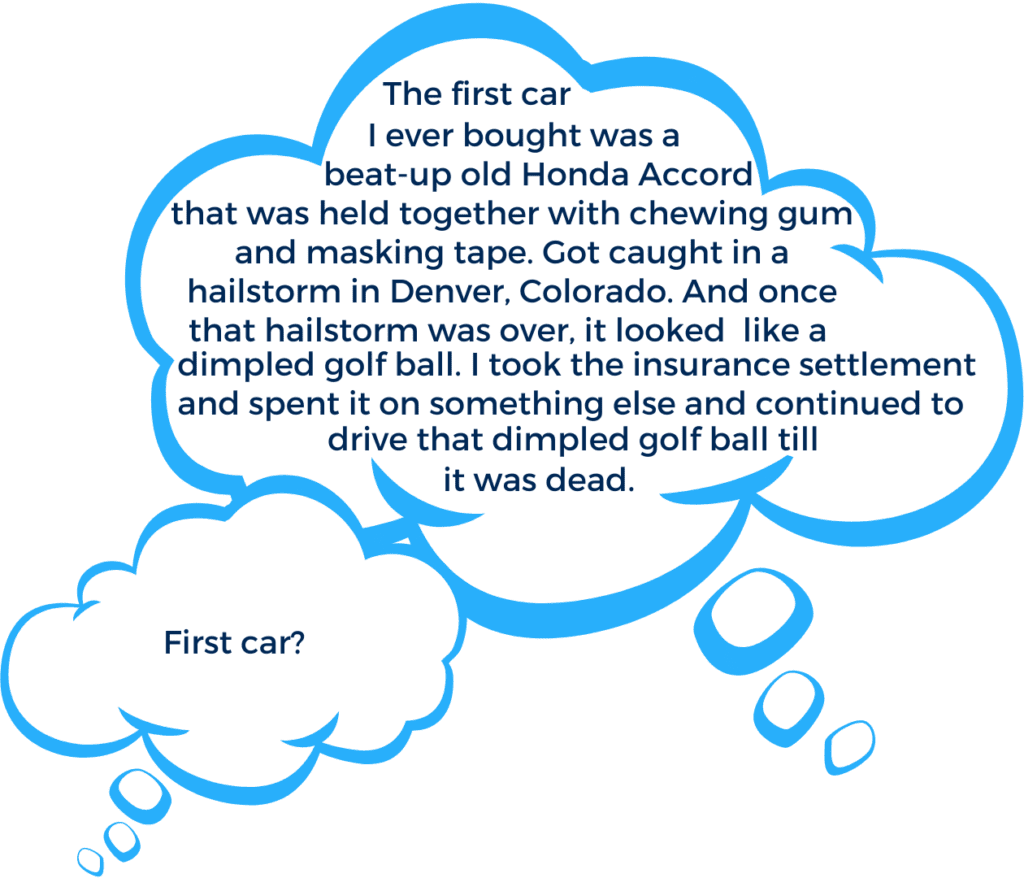
For example, I was researching the name of a new podcast for a friend of mine, and I entered it in there, and there were a dozen podcasts with a similar name. Two of them had more than 12 episodes. So one of the things that make me stand out is the questions I ask truly have my guests in mind. And number two, we’ve done 275 of them now. So it’s not as if, you know, I woke up with a good idea, and now I’m tired of it. This is part of who I am, it’s what I do, and I’m going to chase it with guests in mind, and I have a legacy behind it to prove it.
Tell me about some of the unexpected challenges that you’ve come across.
It’s going to be awesome and easy. And as soon as people realize I’m out there, they’ll start calling and asking to pay me. This is going to be a no-brainer. Or when my kids’ friends say, “Oh, so-and-so’s dad owns his own business. He must be rich then if he owns his own business.”
When I first started talking about the generations in the workplace, there weren’t more than four or five of us nationwide doing it. And it was shooting fish in a barrel, if you will, getting the work. The few of us out there, the way my fees were structured, were all cutting edge, and I was as busy as I wanted to be. When the marketplace saw how busy I was, everybody else joined in. And now there are 10 of them within a mile of me right now. So one of the things that I didn’t expect was how competitive the topic would become and how hard I had to work to stay on top of the topic. And I’ll admit that I let the competitors get ahead of me. And I had this attitude of arrogance. I’m one of the OGs on this topic.
That should do enough. Well, people came in with some really good marketing savvy and new approaches to the topic, and suddenly I found myself competing against them. I trusted a lot of people, and I had people, one in particular who asked me to be his mentor. What I, and I, he seemed like a nice guy. My wife met him and said, I bet he beats his wife. And what I learned later was he was stealing my client, stealing all my content. He was really doing some underhanded things. So I went into it with some naivety. I got burned by one person, and I didn’t realize how competitive I needed to be on the radio show front.
I was surprised to find out how hard it is to create a 54-minute, it has to be a 54-minute on-the-nose radio show currently broadcast across the state. But the difficulty in doing that is getting those seconds down correctly and finding an editor who understands the need to do so. And that’s been a challenge. It remains a challenge. A radio show must have a hard stop, or they won’t play it. So that was a challenge that I’m learning.

And even advertisers, they’re people are very particular with their ad budgets. I thought, Hey, I’m a nice guy. I’ll put you on the radio and for that reason, you should sponsor the show. They’re like, no, it doesn’t work that way. So those were challenges I had yet to anticipate. I’ve had some very generous people along the way regarding the radio show. Still, those were challenges I had yet to anticipate.
I’ve had, I’ve had some great clients in the speaking world that have booked me repeatedly, and it’s still, I, I’ve got one client that’s booked me the same spot every year for 12 years. And I can’t say enough about people like that. They’ve just been wonderful. But the vast majority of it is work that I didn’t expect. And thankfully, I went about it and found some mentors, some people that would help me and let me sit down and ask them stupid questions. And then they let me come back and ask the same stupid question because I couldn’t remember their answer. And they still have patience with me. But there’ve been generous people that have kept me going through a lot of the challenges that I hadn’t anticipated. And thank goodness for those. But those challenges, I essentially smacked my forehead and said, I didn’t even know this would be a problem. I was unaware that this challenge existed out there. I see it clearly now, but this challenge was not on the radar when I said I wanted to do this. Thank goodness it wasn’t. I don’t know if I would’ve done it.
If you were to go back and tell yourself something five years ago, what would you tell yourself?
I wish I had known — Covid brought my generational topic back to the forefront as everybody went to work from home. And then the employers, CEOs, and people that typically hire me are saying, Hey, my millennials won’t return to work. What am I missing about them? Or workplace culture post-covid has become such a big topic, and I know the youngest workforce is demanding a different workplace culture. What do I need to know? So Covid threw my topic back into the headlines if you will. And if I had known five years ago, if I had known that topic would’ve resurrected as quickly as it did, I would’ve said, all right, I have to become the expert on workplace culture as it relates to getting people to come back to work, as it were, refers to building teams, to virtual teams. So if I had known the significance of workplace culture and what Covid would’ve done to disrupt it, I would’ve placed myself in the marketplace as the guy. And we’re working on that. Now. We’re going through videos of recent speeches, picking clips that address these types of things — trying to position me as one of the people that can get out there and talk about workplace culture post-covid with virtual teams or teams that only are in presence with one another three days a week. That’s, that’s been a significant change.
With that being said, if you’re looking into the next three to five years, what are the things that you’ve got your eye on? What are the things that you see are opportunities?
So there are a couple of things. First, the demographics clearly show that there are many more jobs than people to fill. And that is becoming more acute. So it means the employers are saying, what are the biggest tricks for hiring people? What do I need to know? This leads me back to that comment that I made on workplace progression. If I’m the employer here, I will hire you. And here’s what I will teach you on days one through 30 and days 31 through 90, where we’ll grow your skills. Day 91 through 180, here’s how we will develop your skills. It’s a plan for bringing them up to speed, giving them new skills. And with each elevated skill gets a new pay grade. So I foresee going forward with more content that my clients will need around how to structure this thing, enact it in the workplace, and quote, unquote, “sell it” in the recruiting process. Come to work for us. We’ve got this plan for growing your skills. You’re going to make more, you know, down the street initially, but if you stick with us for 18 months, you will, you’ll earn, earn more than you will down the road. We’ll put you on a career path, not just give you a well-paying short-term job. So I think that’s where the workplace is going in the near future.
And I think the more I can bring my content in the radio show towards that, recognizing the pain point of my listeners, the greater the opportunity for the show’s growth. My hope for the radio show is that it will ultimately become a Gulf Coast business show broadcast between South Texas and deep into Florida.
And it’s a reasonable request considering the acute, acute concerns in the workplace today. I have to learn to market that show to get it out there. The show brings education to the listener. The listener, in turn, says who is this guy? Is he available to lead a workshop based on what he’s learning? I want to engage the listener to find out who I am so that they can engage me to do what is making money right now: giving the workshops presentations. Right? In theory, they all build upon one another. And the more I can spread the show outside of Alabama, the greater the reach, the more opportunities I have to travel and deliver that stuff. I don’t want to do a hundred dates a year, but I wouldn’t mind doing 30 to 35 full-paid dates a year. That’s the goal.
What is your relationship with marketing? Being busy producing and distributing content is a form of marketing, but is there anything that you are interested in getting more into?
It’s a great question. I was taught this by an icon in the speaking industry back in the day when I asked him, how do I build my business? How do I get busier? How do I raise my fees? And his comment was, the more you work, the more you work. So the more I get out there and do a good job, the more I’ll be invited. So the best marketing I do is delivering a good presentation. As we’re talking about marketing for the speaking, delivering a good presentation is my best marketing. We’re developing a new sizzle reel that will have the latest content on it. And we’ll put that on YouTube, let the word be known. But when I market myself, it is in the moment of delivering the presentation.
In that regard, my most effective marketing is delivering a high-quality product. And I suspect that’s the case for many people. When it comes to the other stuff, I have a teammate named Helen Broder. She lives in Wilmington, North Carolina, and she does a lot of the marketing, the outbound stuff, calling, the financial planning industry, and saying, Hey, Cam has a unique expertise in this. Let’s let me send you his video and his materials. She does a lot of that, and I’m always available to jump on a call to help secure that opportunity, whatever it may be. When you get into an area like internet marketing, like social media marketing, like web website development, the world of social media market, the world of Google ad words, the world of buying, all that stuff is a black hole of money for me.
What are some of the marketing wins you feel like you have?
I know I need to do it, but it is a painful spend. And you have to wonder what the value of a video is, like, you know, someone clicks on a video. What is, what is I, I, I could, I could probably figure out what I paid for that, but what is the return on that? And it seems to me I’m very cynical here, and I admit it, and I’ve outsourced it as a result.
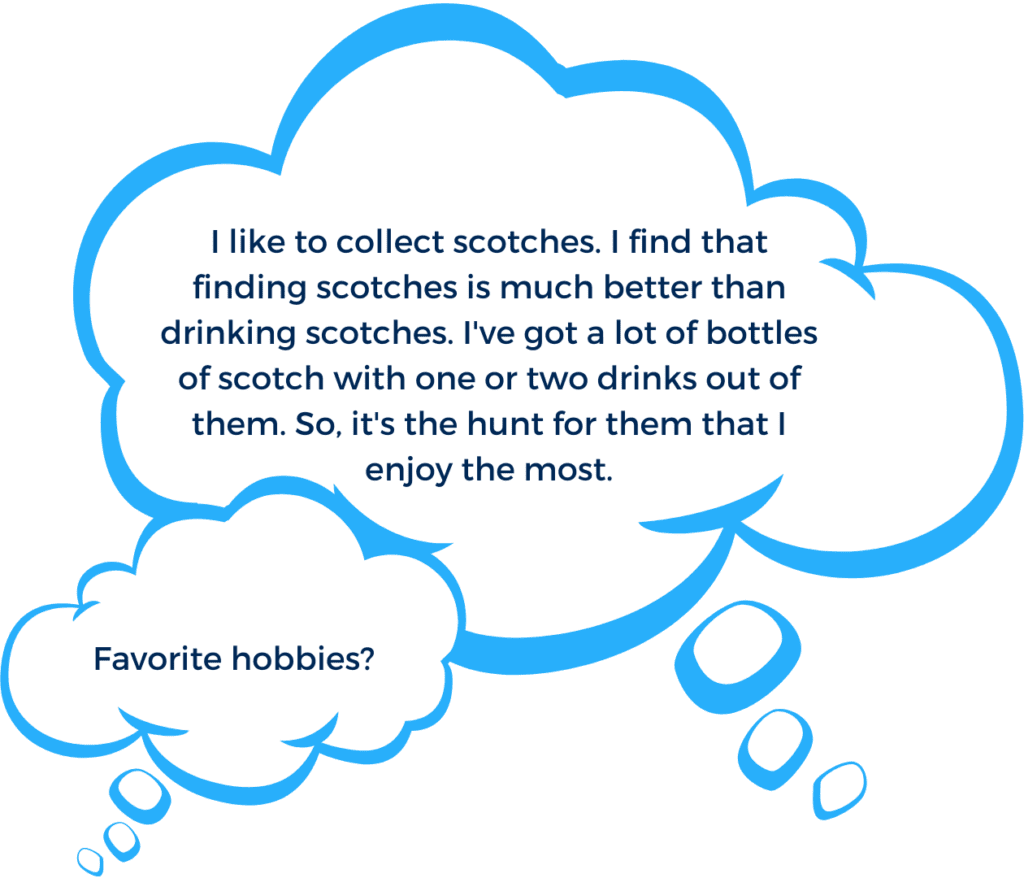
But everybody in the social media marketing world, the Google AdWords world, whatever that world may be, when I say, all right, what’s the results? Their answer is usually the same. You haven’t given it enough time. And if you really want results, you need to throw more money into it, which is a beautiful answer for somebody who’s in the business of selling, you know, air. It’s just a painful, painful spend. And I do it, you know, I see the clicks go up, I see the, the comments come in, and I think, well, that worked, but leading to what, you know. Yeah. So I have a cynical attitude towards social media and internet marketing, mainly because I’ve paid a fortune for it. And I can’t identify any results, with one notable exception 15 years ago when I did a Google AdWords purchase, and the topics I was speaking on were still very new. A lady from GE, who I still keep up with, clicked on it. I paid 5 cents for her click, clicked on it, and booked me for what ultimately became over a five-year period, probably 80 presentations and a thousand books. And that was beautiful.
It hadn’t happened since. And, and, you know, and maybe I should be grateful for that and just say, Hey, most people don’t get that. Right. But that was a good one. Since then, that money seems to evaporate, with the answer being, well, you haven’t given enough time, and you need to spend more money. Like, that’s the answer for everything.
I think the sizzle reel that I have, and the new one I’m developing is a valuable tool as long as it’s out there on YouTube. I think it’s a valuable tool, and we drive people to it to take a look. The books are a form of marketing that I’ve written, and I send them in advance. It gives me some credibility.
So much insight from Cam Marston into starting a podcast and keeping up with it! We are definitely more excited for Unreasonably Optimistic to get off the ground, and we already have some great ideas in mind based on Gayle’s chat with Cam.
It is interesting to learn that there truly is a generational divide in how and where people want to work. We may be a smaller (but mighty) marketing agency, but we experience this. We all have different backgrounds, some have to have a dedicated space for working while others could work anywhere just with a laptop. We embrace these differences, though, and don’t believe in “touching the office wall” every day.
Have you experienced this shift in the workforce? Do you feel like alternative working locations are going to continue to become the norm? Are you dealing with the generational divide? Maybe it is time to problem-solve with Cam Marston.


